Browse the main conference and workshop programme for our CST Safeguarding Conference 2026.
Programme details are subject to change.
Opening remarks from Steve Rollett, Deputy Chief Executive, CST.

Deputy Chief Executive, CST
Steve Rollett is Deputy Chief Executive of the Confederation of School Trusts (CST), the national organisation and sector body for school trusts in England. Before joining CST, he was Curriculum and Inspection Specialist for the Association of School and College Leaders. Steve has sat on a range of advisory bodies, including Ofsted’s curriculum advisory group. Most recently he has supported Oak National Academy and the Department for Education’s remote learning advisory group. Originally trained as a history teacher, Steve was a vice principal of one of England’s most improved secondary schools before moving into a career in education policy.
Welcome remarks from Dr Jon Needham, National Director of Safeguarding and Wellbeing, Oasis Community Learning and Chair of CST's Safeguarding professional community.

National Director of Safeguarding and Wellbeing, Oasis Community Learning
Jon originally trained as a nurse specializing in adolescents with life limiting illness before moving to become an advisor to a large strategic health authority and a commissioner in a primary care trust. He worked briefly as a specialist advisor on two World Health Organization projects before becoming the lead for early help and multi-agency working in a large local authority.
He became an education safeguarding advisor 16 years ago managing the support offer to 530 schools and for the past six years has worked as the National Director of Safeguarding & Mental Health for the Oasis Trust.
He qualified as a PhD in Education Safeguarding at Liverpool Hope University and has recently published a book on managing sexting in education. He acts as a mentor to five young men starting out in industry ensuring that they develop to their full potential. In his spare time, he is a voluntary youth worker. When (if) he ever relaxes he is a keen fan of Korean dramas (though must use subtitles).
Nine in 10 children in the UK play video games and the popularity of Esports continues to grow in the run up to the first Olympic Esports Games in 2027. Tom’s keynote will help us to understand the scale of Esports in the UK, and how and why young people are engaging with them. It will examine the preconceptions and misconceptions that can create a disconnect between adults and young people in this area, identify the key safeguarding risks of Esports and consider the practical steps that trusts and schools can take to help keep young people safe.
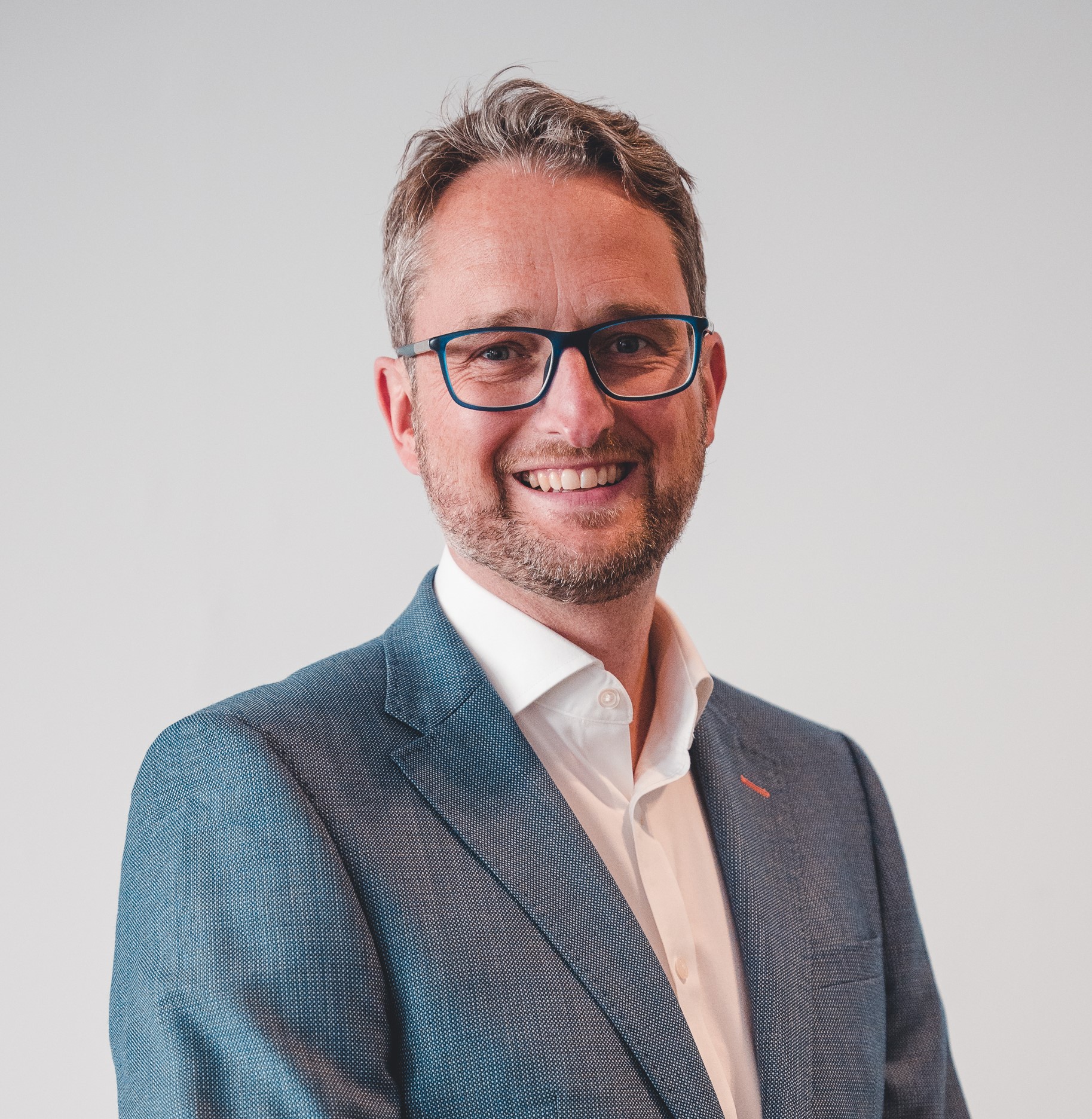
Vice President, British Esports Federation
Tom is the Vice President (and DSL) of the British Esports Federation and is recognised as a global leader in education and standards in esports, having led the development of both competitive and academic esports programmes in the UK and around the world.
Learning from traditional sport, he is currently leading the drive to create global standards for safeguarding in esports, along with a recognised framework for esports coaching and wider professional development. He has recently been invited to join the International Olympic Committee’s Clean Esports Group, in particular, the safeguarding sub-group, ahead of the Olympic Esports Games in 2027. He is also Vice Chair of the Education, Culture, Youth Commission of the Global Esports Federation.
Tom has a background in secondary education having taught across state, independent and alternative provision schools for nearly 20 years. This experience includes senior leadership roles covering both academic and pastoral responsibilities.
Children with SEND experience unique opportunities and risks in digital spaces. Whilst technology can enhance communication, learning and social interaction, children with SEND can face heightened online risks, including cyberbullying, grooming, and exposure to harmful content. Existing safeguarding strategies often fail to address their specific needs, focusing on risk avoidance rather than empowerment. This keynote will draw upon an evidence-based analysis of the complex intersection of SEND, digital technology and online safety to offer practical recommendations, including how schools can lead on multi-stakeholder approaches to create a safer and more accessible digital world.

Professor of IT, Ethics and Digital Rights, Bournemouth University
Andy Phippen currently serves as Professor of Digital Rights at Bournemouth University and holds a Visiting Professorship at the University of Suffolk. With a career spanning nearly two decades, his work explores how information and communication technologies affect society, focusing on critical issues such as internet safety, data protection, sexting, peer abuse, and the impact of digital environments on well‑being.
Andy has an extensive publication record, having authored 17 books along with numerous journal articles and book chapters. He actively contributes to policy making—providing written and oral evidence to parliamentary inquiries—and is a frequent media commentator on youth and internet safety. He also serves on the International Panel on Child Protection and Social Media and supports prominent UK online safety efforts through partnerships with the UK Safer Internet Centre, Internet Matters, and roles within the British Computer Society and SWGfL.
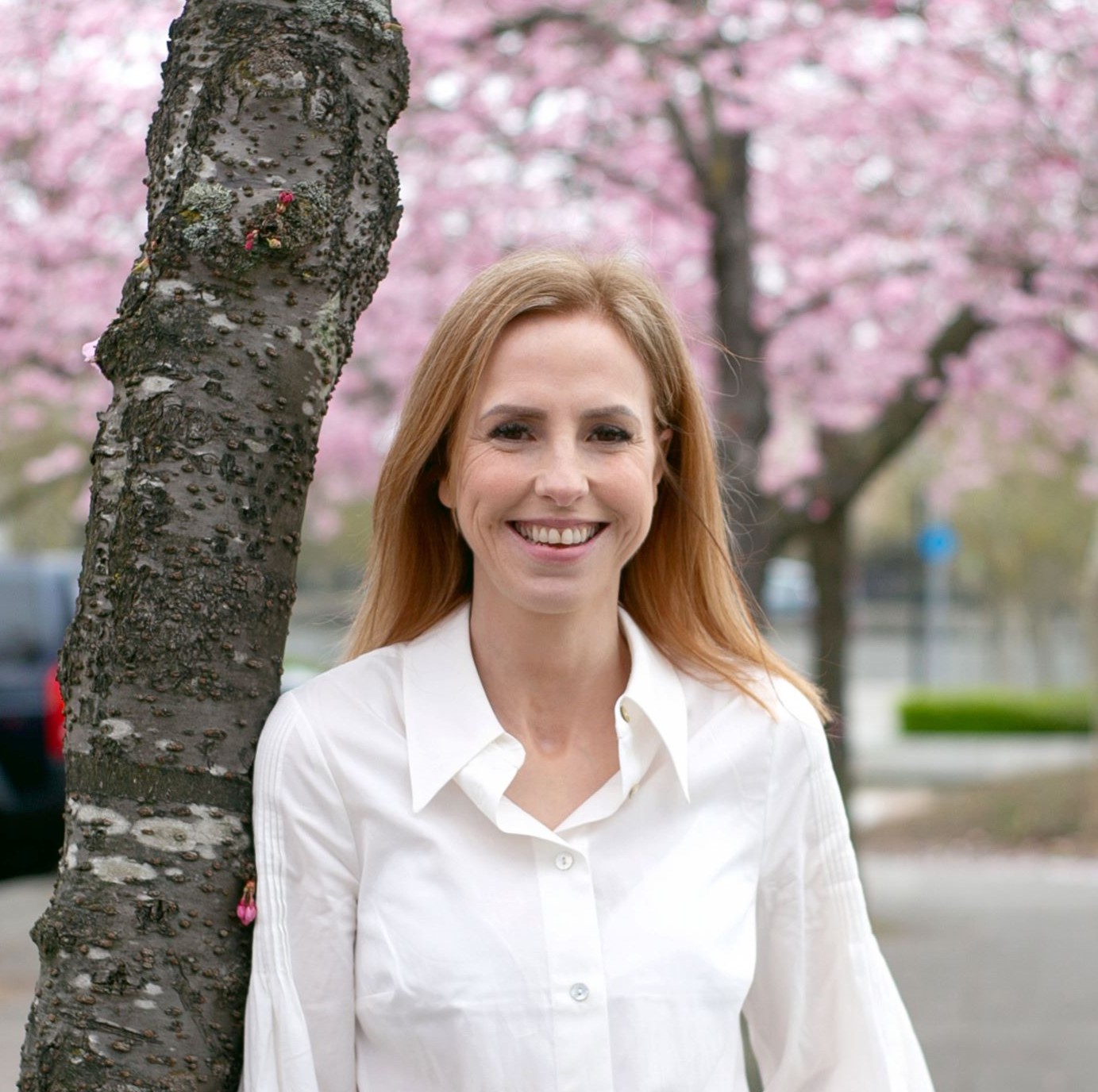
Senior Lecturer in Human Resource Management, University of Northampton
Dr Hayley Henderson is a researcher and educator with a career spanning nearly two decades in higher education. She has held multiple key academic roles and has played a pivotal role in delivering UK HE programmes in partnership with institutions in countries such as China, Sri Lanka, Vietnam, and the UAE.
An active researcher and published author, Dr Hayley Henderson’s scholarly work spans digital literacy, digital wellbeing and online safety in education. Her publications reflect her interest in the intersections between technology, wellbeing and community engagement. Her multidisciplinary background—grounded in computing, business, and education—equips her to lead with insight, empathy, and innovation.
Dr Hayley Henderson is passionate about helping people find balance in our hyper-connected world, guiding them to use technology intentionally rather than letting it take over.
A guided discussion to share knowledge and practice facilitated by Dai Durbridge, Partner and Safeguarding Expert, Browne Jacobson.

Partner and Safeguarding Expert, Browne Jacobson
Dai is a recognised safeguarding expert and regularly supports trusts with complex safeguarding issues including handling disclosures of abuse, managing allegations against staff and involvement in Child Safeguarding Practice Reviews. He also supports trusts with safeguarding governance reviews.
Dai is an experienced trainer and national coach and mentor for trust designated safeguarding leads (DSLs). He provides "invaluable” guidance and a "reassuring, safe place” where individuals can improve their knowledge and learn from best practice. As well as speaking at national safeguarding conferences and delivering his tailored courses to trust DSLs, Dai also delivers CST's masterclass on safeguarding and the safeguarding module of the CST Essential Trustee Programme.
Delegates can choose from a range of workshops led by trust leaders and sector experts which will explore whole-trust approaches to preventing violence against women and girls, and strategies for safeguarding autistic children without speech. Details of a third workshop on the topic of safeguarding data will be added to this series shortly.
The Children’s Commissioner’s Office has engaged with a million children over the last five years, and in its recent school census, thousands of teachers. It's clear that whilst good teaching remains the most powerful driver of change, for a significant number of children, especially those with SEND, in poverty, care or experiencing poor mental health, this needs to backed by strong partnerships, well-resourced services and properly trained staff if they are to achieve and thrive. This keynote draws upon the CCO's extensive research to bring children’s voices into our thinking. It will ask what it takes to have a system that's inclusive by design and consider the role that trust safeguarding leaders can play in keeping children's needs at the front and centre of their schools' partnerships and practice.
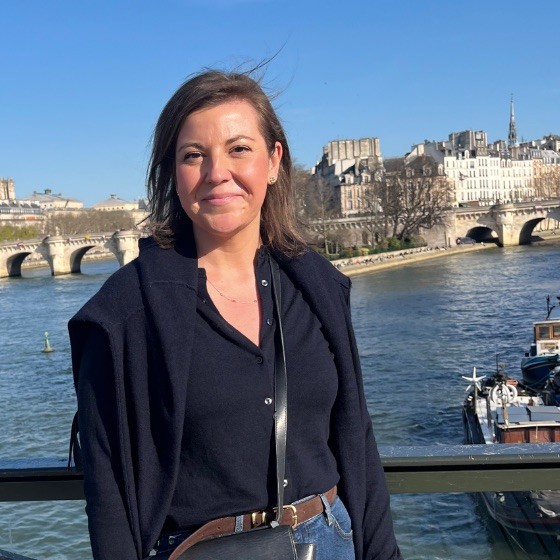
Executive Director, The Children’s Commissioner’s Office
Juliette Cammaerts joined the Children’s Commissioner’s office in 2021, on Dame Rachel de Souza’s appointment to the role. She serves as Executive Director, overseeing the office’s landmark work completing the two largest-ever surveys of children ‘The Big Ask’ and ‘The Big Ambition’. Most recently, Juliette led on The Children’s Plan: The Children’s Commissioner’s School Census, which used the Commissioner’s statutory powers on schools for the first time to collect new, comprehensive data on how schools are supporting children to attend, engage, attain and excel.
Prior to this, Juliette worked at the Department for Education, where she managed ministerial teams over a seven-year period. She led on all matters relating to children and families, championing children’s rights through the introducing of new policy measures - and advised the DfE throughout the unprecedented coronavirus crisis.
Before joining the civil service, Juliette studied French and Arabic at UCL and SOAS.
Most children spend vastly more time in schools than they do in contact with any other social agency, yet education does not always feel that its impact and expertise is fully recognised in safeguarding partnerships. The case for a shift towards equality, respect and strategic inclusion for education in these partnerships is overwhelming. This keynote explores how trust safeguarding leaders can achieve this to improve outcomes for children and begins a consultation on making this a reality.

Safeguarding and Leadership Consultant
Jon was the "inaugural and last" National Safeguarding Partnership Facilitator for Education, working with the Department of Education, nationally advocating for education to be a statutory and strategic safeguarding partner. Since leaving this post he continues to fight for education to have a strategic place at the safeguarding table which he will be sharing with you at conference.
Jon also supports trusts and schools with strategic leadership and safeguarding. Jon has many years of headship and safeguarding experience and is the creator of the new "Strategic Safeguarding (Quality Mark) Framework."
This panel brings together a range of different expert perspectives to explore how education leaders can make change for the better in safeguarding partnerships and answer your questions.

Partner and Safeguarding Expert, Browne Jacobson
Dai is a recognised safeguarding expert and regularly supports trusts with complex safeguarding issues including handling disclosures of abuse, managing allegations against staff and involvement in Child Safeguarding Practice Reviews. He also supports trusts with safeguarding governance reviews.
Dai is an experienced trainer and national coach and mentor for trust designated safeguarding leads (DSLs). He provides "invaluable” guidance and a "reassuring, safe place” where individuals can improve their knowledge and learn from best practice. As well as speaking at national safeguarding conferences and delivering his tailored courses to trust DSLs, Dai also delivers CST's masterclass on safeguarding and the safeguarding module of the CST Essential Trustee Programme.

Safeguarding and Leadership Consultant
Jon was the "inaugural and last" National Safeguarding Partnership Facilitator for Education, working with the Department of Education, nationally advocating for education to be a statutory and strategic safeguarding partner. Since leaving this post he continues to fight for education to have a strategic place at the safeguarding table which he will be sharing with you at conference.
Jon also supports trusts and schools with strategic leadership and safeguarding. Jon has many years of headship and safeguarding experience and is the creator of the new "Strategic Safeguarding (Quality Mark) Framework."

Executive Director, The Children’s Commissioner’s Office
Juliette Cammaerts joined the Children’s Commissioner’s office in 2021, on Dame Rachel de Souza’s appointment to the role. She serves as Executive Director, overseeing the office’s landmark work completing the two largest-ever surveys of children ‘The Big Ask’ and ‘The Big Ambition’. Most recently, Juliette led on The Children’s Plan: The Children’s Commissioner’s School Census, which used the Commissioner’s statutory powers on schools for the first time to collect new, comprehensive data on how schools are supporting children to attend, engage, attain and excel.
Prior to this, Juliette worked at the Department for Education, where she managed ministerial teams over a seven-year period. She led on all matters relating to children and families, championing children’s rights through the introducing of new policy measures - and advised the DfE throughout the unprecedented coronavirus crisis.
Before joining the civil service, Juliette studied French and Arabic at UCL and SOAS.
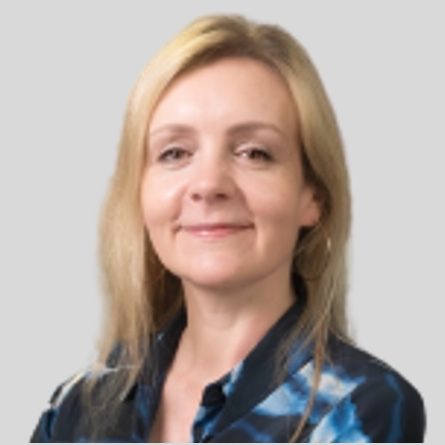
Executive Director of Children's Services, Middlesbrough Council
Annabel Bates is the Executive Director of Children's Services for Middlesbrough Council. As the statutory DCS for the town, Annabel works with schools and settings across the local area to improve services and opportunities for children and young people. She was previously director of education & inclusion for the London Borough of Newham, the education representative for the London Adolescent Safeguarding Oversight Board and co-chair of the London Safeguarding Children's Partnership's Education Sub Committee.
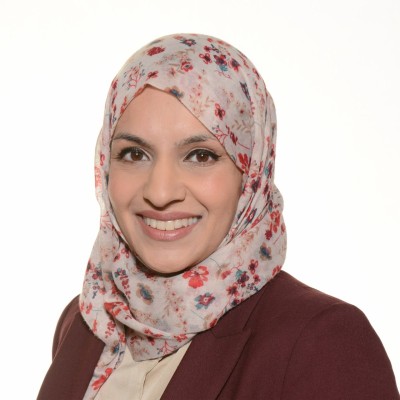
Headteacher, Regents Park Community Primary School
Shahista Zamir is the Headteacher at Regents Park Community Primary School in Birmingham. She has worked in schools for over 13 years, with over eight years of senior leadership experience across maintained and multi-academy trust schools, serving diverse inner-city communities. A highly experienced Designated Safeguarding Lead, she has led through multiple inspections and supported other leaders to strengthen safeguarding culture and practice.
Shahista has spoken nationally on emotional-based school avoidance (EBSA), attendance, and inclusion, and has been invited to contribute to several national conferences, including the CST Safeguarding Conference, where she brings the perspective of a maintained school headteacher and a DSL.
She holds the national professional qualification for headship (NPQH) and is currently completing a masters in educational leadership at the University of Birmingham. Her leadership is values-driven, rooted in integrity, compassion, and a commitment to equity, belonging, and the wellbeing of all pupils.

National Director of Safeguarding and Wellbeing, Oasis Community Learning
Jon originally trained as a nurse specializing in adolescents with life limiting illness before moving to become an advisor to a large strategic health authority and a commissioner in a primary care trust. He worked briefly as a specialist advisor on two World Health Organization projects before becoming the lead for early help and multi-agency working in a large local authority.
He became an education safeguarding advisor 16 years ago managing the support offer to 530 schools and for the past six years has worked as the National Director of Safeguarding & Mental Health for the Oasis Trust.
He qualified as a PhD in Education Safeguarding at Liverpool Hope University and has recently published a book on managing sexting in education. He acts as a mentor to five young men starting out in industry ensuring that they develop to their full potential. In his spare time, he is a voluntary youth worker. When (if) he ever relaxes he is a keen fan of Korean dramas (though must use subtitles).
Preventing violence against women and girls requires a culture change within our school communities to address the root causes of men’s violence against women - harmful attitudes, behaviours and expressions of masculinity. In this workshop, we hear how one trust has established an initial three-year strategy to tackle this issue at all levels across its schools including culture, curriculum, systems and behaviours. We'll look at what this means for staff at the trust, especially male leaders and role models, and explore how being the first school trust to achieve White Ribbon accreditation has helped shape and support this work. You will gain insights into how and why the trust is taking this approach, hear about the impact of this work to-date and gain practical ideas to take back to your colleagues.
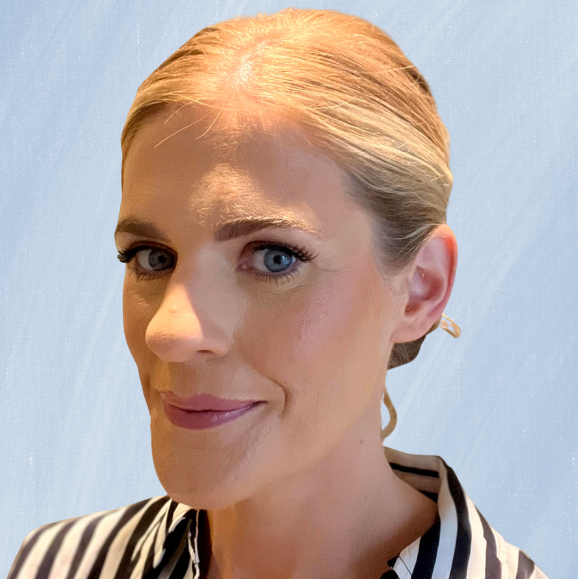
Trust Safeguarding and Inclusion Lead, Kings Group Academies
Laura Phillips began her teaching career in Surrey in 2006 and has since held a range of senior leadership roles, including SENCO, DSL and deputy headteacher. She is now Trust Lead for Safeguarding, Attendance and Inclusion at King’s Group Academies, overseeing the development and delivery of safeguarding and SEND strategy across the trust.
Laura is passionate about equity in education and improving opportunities for all children. She leads the trust’s work on tackling violence against women and girls and plays a key role in developing inclusive practices that have real impact on young people’s lives. Alongside this, she supports leadership development by facilitating SENCO and NPQSL courses, helping staff grow in confidence and expertise. She also works collaboratively with colleagues in other trusts, sharing best practice and strengthening safeguarding and inclusion at a wider level.
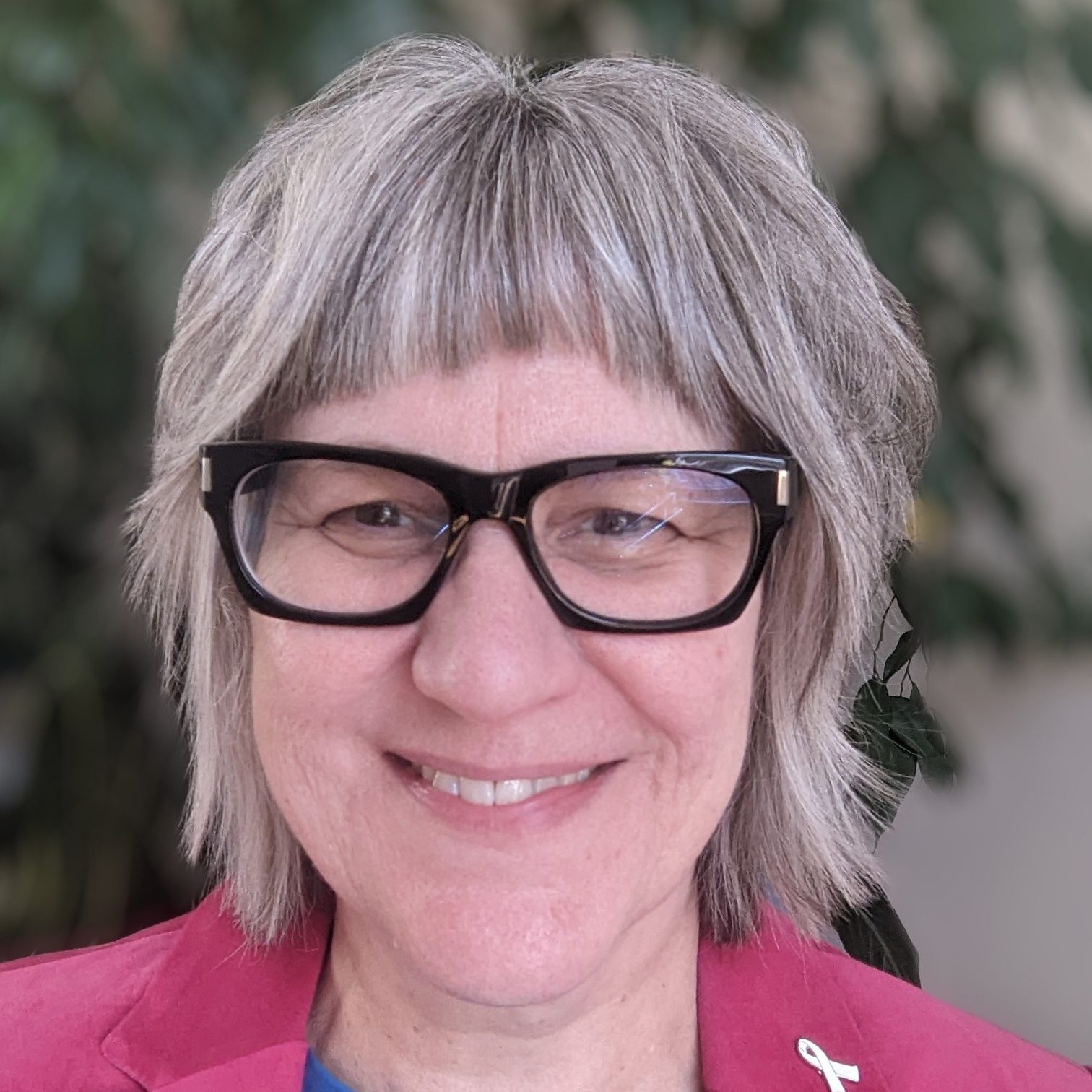
Chief Executive Officer, White Ribbon
Lynne has spent over 17 years as a charity CEO, leading organisations across the third sector with a focus on social justice, health, and advocacy. Her work has supported young people, survivors of sexual violence, older adults, and people with learning disabilities, reflecting a deep commitment to equity and inclusion.
This workshop will explore how building relationships with autistic children, particularly those who do not use speech to communicate, is central to effective safeguarding. We’ll examine alternative approaches to capturing the voice of the child, and how these can inform safeguarding decisions and practice. The session will also highlight the importance of working collaboratively with families to develop a holistic understanding of each child’s needs, to create safe, inclusive, and responsive environments.

Assistant SENCo & Head of Research, Thames Valley School
Christina Johnston is Head of Liberty Research School and a doctoral candidate at the University of East London. With a background in psychology and special education, she has also worked as therapy team lead within Thames Valley School with a focus on improving outcomes for autistic young people. Her research and practice centre on co-producing evidence-based approaches with pupils, families and professionals, ensuring that interventions enhance education, wellbeing and safeguarding.
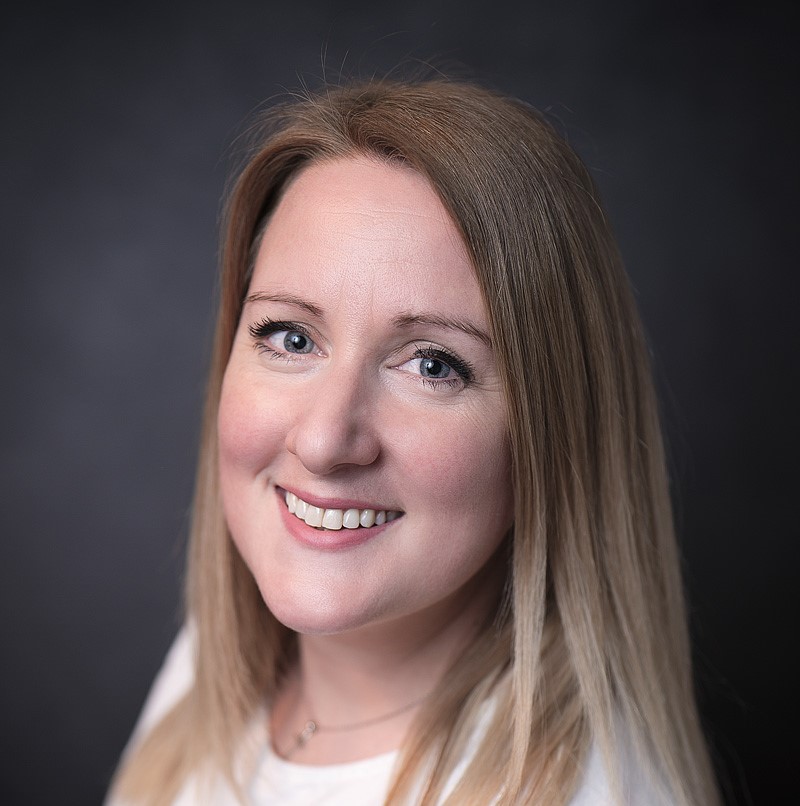
Director of Safeguarding, Liberty Academy Trust
Nicola Law is an experienced safeguarding leader with a strong background in education. She began her career as a family support worker and designated safeguarding lead, later becoming a specialist leader in education supporting schools across multiple partnerships and trusts. Nicola has held senior safeguarding roles in large academy trusts, including regional safeguarding lead and deputy director of safeguarding, overseeing safeguarding strategy across a diverse range of schools. She now serves as Director of Safeguarding at Liberty Academy Trust, an autism specialist trust, leading safeguarding, behaviour, attendance and therapeutic strategy across the trust.
School trusts are at different points in developing data-driven safeguarding practice, yet all benefit from systems that turn daily activity into clear and actionable intelligence. This workshop explores how effective data extraction and trust-wide configuration can provide leaders with a consistent view of risk, workload and emerging trends. We will also look at how the new data and analytics solution, CPOMS Insight, supports trusts that are just beginning to use safeguarding data, as well as those ready to build more advanced analysis and reporting. The session will highlight the practical steps that help you design a scalable safeguarding framework, the benefits of high-quality data for operational and strategic planning and ideas for building a system that grows with your trust.

Senior Product Manager, CPOMS
Sam is a Senior Product Manager at CPOMS, specialising in safeguarding and wellbeing solutions for schools and school trusts. With more than a decade of experience across education, safeguarding and ed-tech, Sam leads product strategy and development for tools that help organisations use data to strengthen practice and improve outcomes. Sam’s background in school leadership, including work as a designated safeguarding lead, provides a practical understanding of the pressures faced by safeguarding teams and the operational insights leaders need. This experience informs a user-centred approach to product design and ensures CPOMS Insight supports trusts at every stage of their data driven safeguarding journey. Sam is passionate about helping education providers build scalable, intelligence led safeguarding systems that support both day to day work and strategic decision making.

Managing Director, CPOMS Systems Limited
Rick is the Managing Director of CPOMS, bringing over 20 years’ experience in EdTech. Having worked with leading organisations such as RM, Advanced Learning, Impero and Iris, he specialises in delivering cross-platform integrations to support data-driven decisions in education.
How do we strike the right balance between meeting some of our most vulnerable children's needs around attendance and keeping them safe? This workshop will explore the policy, pinch points and practice of effective safeguarding for severely absent pupils in school trusts. We will consider strategies that trust safeguarding leaders can adopt around data, information-sharing and collaboration with partners and take a practical look at what works for severely absent pupils, including the levers that trusts can use support DSLs in this increasingly urgent and complex area.
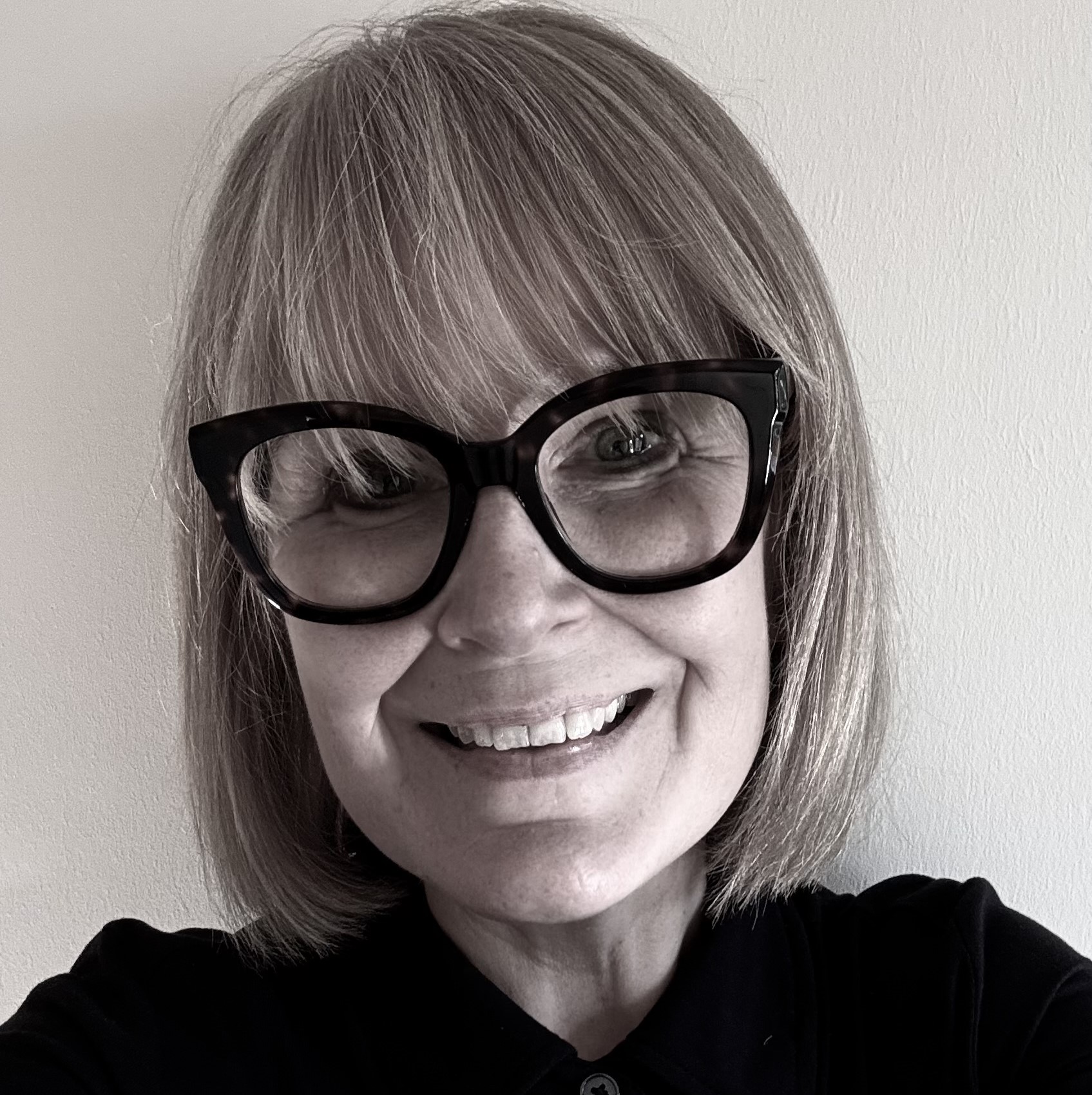
Education Advisor to the DfE, Bright Green Learning Ltd
Jayne Lowe is an Attendance and Behaviour Adviser to the DfE. She has previously been a pupil referral headteacher and managed attendance and inclusion services within a local authority. She has successfully developed and implemented strategy and leading practice with schools and local authorities across the country. Jayne is External Expert to the Youth Custody Service and has been instrumental in the set up of the only secure school in the country. As the founder and managing director of Bright Green Learning she has provided school improvement support to over 100 schools, with a particular focus on leadership development, attendance, safeguarding and behaviour.
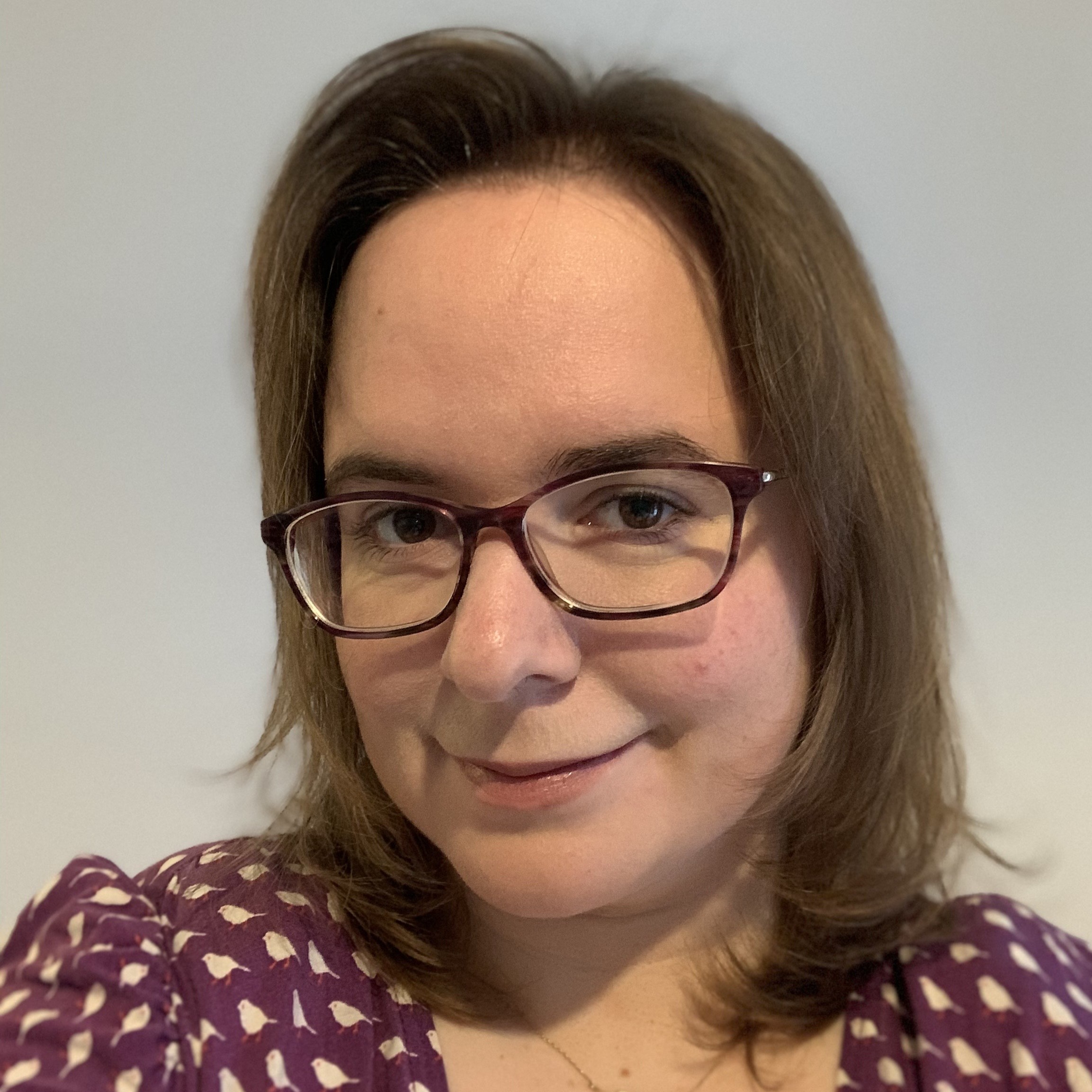
Safeguarding Content Lead, The Key
Katherine Fowler is the Safeguarding Content Lead at The Key, where she is responsible for the content that sits on The Key Safeguarding. She joined the organisation in 2020 as a content editor and has since progressed to her current leadership role, drawing on her extensive experience to create essential resources for schools. Prior to her time at The Key, Katherine worked as a research manager at NFER, where she developed a strong foundation in data analysis and educational research. Her background provides her with a unique perspective, allowing her to deliver practical and evidence-based resources to help schools meet their safeguarding duties effectively.
How do trust safeguarding leaders ensure that their schools' safeguarding practice is inclusive? Can we be sure that our approach is contextual and not conceptual? Are there gaps between our trust promise and our practice? And how do we know what's working? In this interactive workshop, you will be invited to discuss what inclusive safeguarding means, share your experience and consider how to test assumptions and assess the impact of your trust's approach.

National Director of Safeguarding and Wellbeing, Oasis Community Learning
Jon originally trained as a nurse specializing in adolescents with life limiting illness before moving to become an advisor to a large strategic health authority and a commissioner in a primary care trust. He worked briefly as a specialist advisor on two World Health Organization projects before becoming the lead for early help and multi-agency working in a large local authority.
He became an education safeguarding advisor 16 years ago managing the support offer to 530 schools and for the past six years has worked as the National Director of Safeguarding & Mental Health for the Oasis Trust.
He qualified as a PhD in Education Safeguarding at Liverpool Hope University and has recently published a book on managing sexting in education. He acts as a mentor to five young men starting out in industry ensuring that they develop to their full potential. In his spare time, he is a voluntary youth worker. When (if) he ever relaxes he is a keen fan of Korean dramas (though must use subtitles).

Head of Inclusion, Oasis Community Learning
Eugene Gilkes is Head of Inclusion for the Oasis family of charities, where he leads a group-wide strategy to embed inclusion as a cultural and organisational priority across 56 schools and more than 6,000 staff and volunteers. He helps to shape systemic structures and practices that strengthen inclusion, leadership, and performance across the trust.
Eugene is the creator of the TIDES of CHANGE® framework, which integrates purpose, inclusion, and cultural intelligence to support organisations in building thriving ecosystems. He is working with leaders across Oasis to develop new mechanisms that close the ‘promise to practice’ gap and ensure that no one is left out.
Prior to his work in education and organisational performance development, Eugene was an international decathlete and Commonwealth Games medallist. He brings over 35 years of cross-sector leadership experience and contributes regularly to national conversations on inclusion and cultural transformation.
At a time when girls are reporting increased pestering and pressure around sex, this workshop explores how we can harness deep listening, student voice and peer-to-peer cascade to support girls' mental health – particularly around improving body image, self-esteem and personal boundaries. The workshop will share insights from GLF Academy Trust's two-year project to remove barriers between adults' understanding and the reality of children's lived experience, create practical resources that are for students by students, and determine how to equip young people to discuss sensitive issues with peers in a thoughtful, empathetic and responsible way. Participants will gain a clear understanding of the project rationale, scope, approach and intended outcomes. There will be an opportunity to contribute your experience to the collective thinking around this work and to consider how this approach could be replicated within your trust.
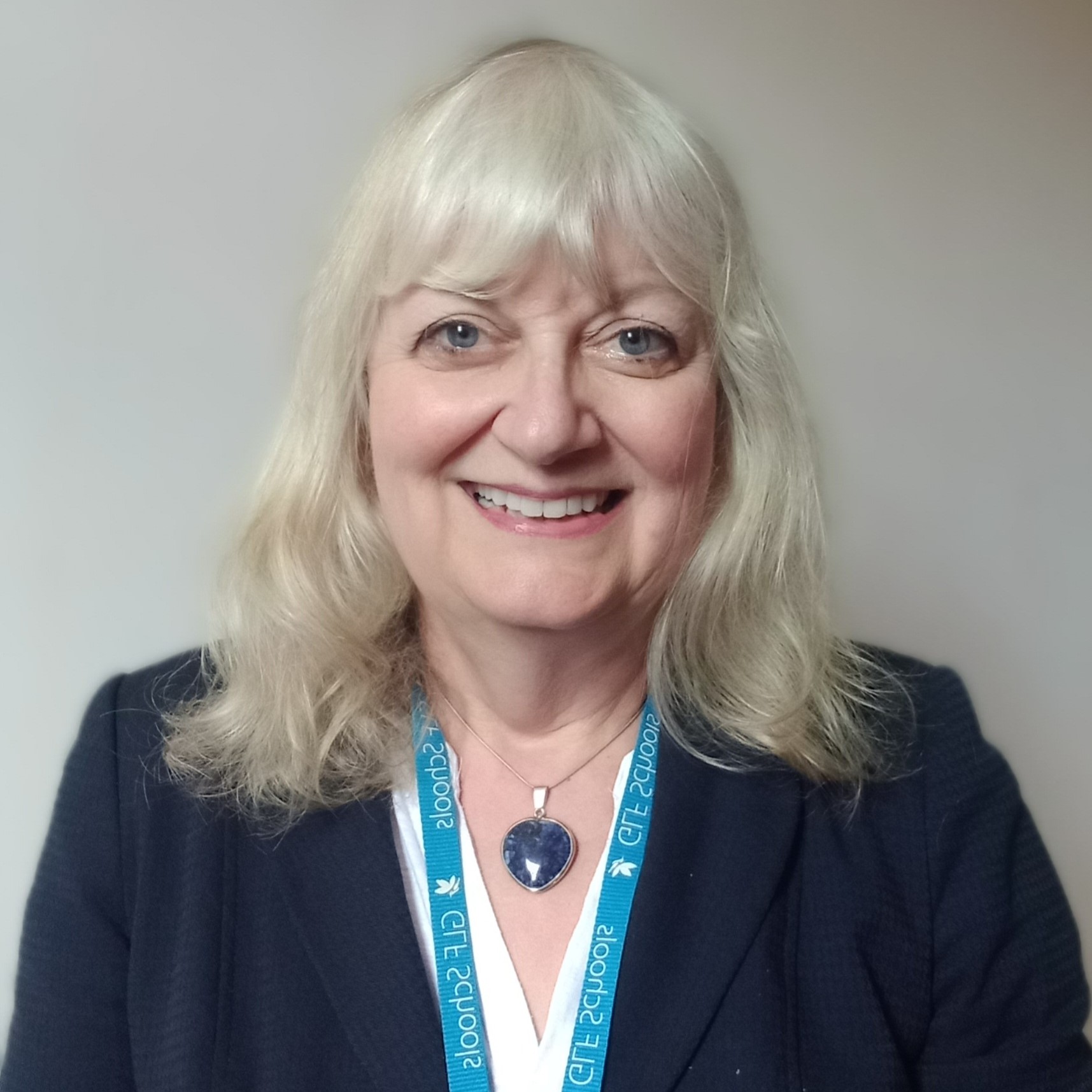
Trust Safeguarding and Mental Health Lead, GLF Academy Trust
Fiona Jarman is the Safeguarding and Mental Health Lead for GFL Schools - a trust which serves over 19,000 children and young people aged two to 19 in a diverse array of settings. She has worked in education for over 30 years in multiple roles within schools in London and Surrey, joining the school support team for GFL in 2013, originally as an SLE for behaviour.
She now leads professional development and supervision for DSLs, SMHLs and thrive practitioners in GLF and has had the great privilege of seeing the direct impact these colleagues have had, making a difference to so many children and young people particularly those who have lived through adverse childhood experiences. As a former young carer herself, Fiona is keen to ensure that the voices of disadvantaged, quiet or neurodivergent children and young people are heard so they are empowered to make real change.

Head of Theory and Practice, Thrive Approach
Viv Trask-Hall is Head of Theory and Practice at Thrive Approach, an experienced education leader and passionate advocate for inclusion. A Distinguished Fellow of the International Forums of Inclusive Practitioners (DFIFIP), Viv has a proven track record of driving innovation in education and socio-emotional development.
With leadership experience as SENCO, headteacher, executive headteacher, and school trust founder, Viv has successfully guided schools through challenging transitions. Her expertise spans the age ranges, with specialisms in early years and SEND. Viv introduced Thrive into schools and witnessed its transformative impact on behaviour, attendance, attainment, and mental health.
Viv is committed to global collaboration and advancing inclusive practice. She recently represented Thrive Approach and Best Practice Network International at the World Inclusion Congress 2025 in Almaty, Kazakhstan, speaking on parents as partners in inclusive education and contributing to expert panels on best practice for inclusion. She also serves as a director of Exceed Learning Partnership, which was highly commended at the NGA Outstanding Governance Awards 2025 for excellence in governance and impact across the Doncaster community.
Alongside her professional roles, Viv is a foster carer and leads a Mockingbird fostering constellation, reflecting her dedication to supporting children and families both in education and care settings.